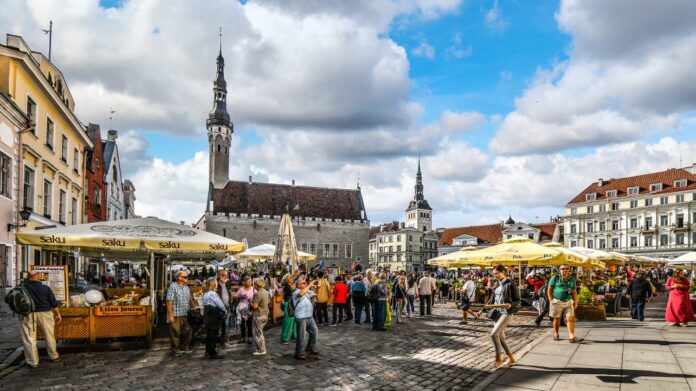
IMF Predictions
The full scale of the damage to the global economy brought about by Russia’s war on Ukraine was revealed on April 19 in the International Monetary Fund’s (IMF) latest World Economic Outlook, writes Marek Grzegorczyk on Emerging Europe.
Global economic growth this year is now forecast to be just 3.6 per cent – one percentage point lower than predicted by the IMF in January. The revised projection could be optimistic if the war spreads beyond Ukraine, if economic sanctions on Russia extend to include energy supplies, if worse variants of Covid-19 lead to further lockdowns or if China’s downturn becomes prolonged.
For a variety of reasons, Central and Eastern Europe and Central Asia is particularly vulnerable to the economic impact of the war in Ukraine as they have large direct trade and remittance links with Russia. The displacement of about five million Ukrainian people to neighbouring countries adds to economic pressures in the region, said the IMF’s economic counsellor and director of research Pierre-Olivier Gourinchas.
For Ukraine itself, the war will cause a very severe contraction of 35 per cent. Inflation is already a problem for many countries with rapid rises in food and fuel prices.
The most vulnerable countries in Central and Eastern Europe are the three Baltic states – Estonia, Latvia, and Lithuania – all expected to see double-digit inflation this year as a result of higher oil and natural gas prices.
Lithuania (14 per cent) and Estonia (11 per cent) had already leapt to the top of the euro area’s inflation table in February, according to Eurostat. Inflation was lower in Latvia, but still in the high single digits (8.8 per cent). The IMF forecasts a jump in consumer prices of 13.3 per cent in Lithuania for 2022, 11.9 per cent in Estonia and 10 per cent in Latvia. Among EU member states, only Hungary (10.3 per cent) and Bulgaria (11 per cent) are forecast to see inflation at similar levels.
According to Fitch Ratings, Lithuania is particularly exposed to international energy price volatility after it phased out domestic nuclear energy in 2009, with imports accounting for three-quarters of its energy supply.
Latvia is undertaking plans to reduce its reliance on Russia, which provides all of its natural gas imports, by accessing Lithuania’s liquefied natural gas (LNG) terminal at Klaipėda, but the required pipeline expansion will take until next year. Estonia is the least reliant of the Baltic states on energy imports due to domestic coal and shale oil production.
Earlier this month, all three Baltic states said that they had halted imports of Russian gas. Lithuania’s demand for gas is now satisfied through cargoes delivered to the Klaipėda LNG terminal, the country’s energy minister Dainius Kreivys confirmed, while Estonia and Latvia are relying on gas currently in storage in Latvia. Estonia last month revived a plan to build its own LNG terminal at Paldiski, close to the capital Tallinn, which would also supply Latvia and southern Finland.
Wage growth in the Baltics is forecast to remain strong in 2022, driven by persistent labour shortages and high public sector and minimum wages, but will only partially offset the negative impact on consumer sentiment from the war in Ukraine and rising consumer prices. Growth in all three, believes the IMF, will be minimal: 1.8 per cent in Lithuania, one per cent in Latvia, and just 0.2 per cent in Estonia, where the risk of a contraction now appears to be a real possibility.





























